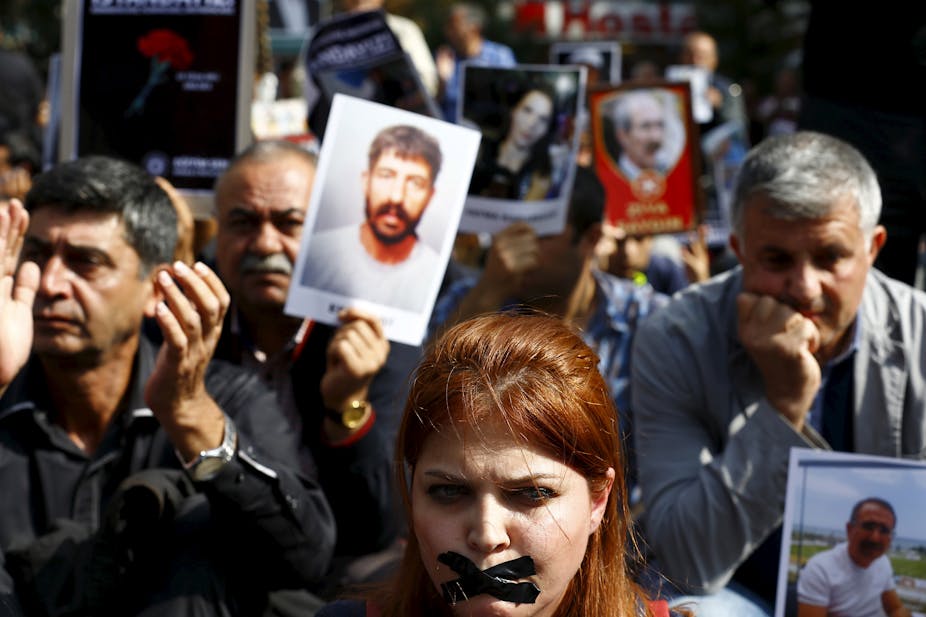Turkey is about to hold its second general election in a year, after the first failed to produce a government. Since the vote in June, the country has been hit by violent unrest.
Whatever the outcome of the impending vote, urgent reform is needed to reinvigorate the progress towards democracy that appeared to have been made with the EU accession process of the early 2000s and the Peace Process (2009-2011; 2013-June 2015) with the Kurdish political movement.
The level of ideological polarisation on display in Turkey in the past few years has been deeply worrying. It has even been argued that Turkey no longer constitutes a sustainable nation state. It has become a state of several nations, divided into vengeful communities who no longer have the will to live side-by-side in peace.
This troublesome political climate is largely the result of the demise of the peaceful negotiations between the incumbent AKP (Justice and Development Party) administration and the two major representatives of the Kurdish political movement – the HDP (Peoples’ Democracy Party) and the PKK (Kurdistan Workers’ Party).
As the Peace Process failed, the armed struggle between the PKK and the Turkish security forces resumed, with tragic consequences for the social fabric of the country. The ensuing violence has robbed Turkey of a historic opportunity to resolve the decades-long dispute between the Turkish state and Kurdish citizens.
During the now collapsed negotiations, the HDP consistently argued that peace in Turkey is only possible if everyone has equal legal status and that the rights of all communities are recognised in the constitution.
This vision does not appear to be shared by the AKP or the mainstream media though. Both continue to argue that the Kurdish rights issue can be resolved through military action against the PKK.
Peace interrupted
Despite having taken a liberal, reformist attitude in the 2000s, the AKP has become increasingly nationalist, conservative/Islamist and uncompromising in its stance on the Kurdish question. Where the party once pioneered attempts to integrate Kurds, Alevis and non-Muslims in Turkey and contributed to a democratic model that included these marginalised groups, it now seems to prioritise the rights of the Sunni majority. It is seen as promoting a conservative Turkish identity and letting national security define its approach to government.
Today, the Turkish democratic model appears to have completely lost its validity. NATO, the US and the EU have raised concerns about press freedom and the way protesters have been treated by the government.
Then there is the government’s apparent desire to reignite its war with the PKK and its reluctance to take action against Islamic State. Turkey’s international image has certainly been severely tarnished in the last few years.
The archaic political order, based on one nation, one language and a narrow vision of society, is based on the link between Turkey and its conservative interpretation of Islamic principles. It cannot therefore accommodate the democratic demands of those who reject top-down social engineering such as Kurds, Alevis, seculars, liberals, LGBT people and various strands of the socialist left.
This fundamental question has not been addressed in the pompous speeches made by government spokespeople in the run up to this election.

Turkey desperately needs to establish a democratic consensus to mend the wounds in the psyches of its increasingly divergent populations. A new political order is needed to prevent these groups from splintering into separate nations. This must be based on multiculturalism and human security. Only through a broad coalition of social forces can the country end the intense polarisation that plagues it and progress towards conflict resolution and peace building.
Beyond election politics
Most independent surveys indicate that the November 1 election will produce a result similar to those seen in June. Back then, the AKP took the most votes but not enough to form a government alone.
This time, there are two possibilities: either the AKP will form a coalition government with one of its opponents and get used to political compromise after almost 13 years of uninterrupted one-party rule, or president Recep Tayyip Erdoğan will call for another election within a few months. That would further deepen the current crisis.
All scenarios for Turkey’s future, including the possibility of the AKP winning a parliamentary majority, demand that a plural and democratic centre ground be found. People need to be able to find peaceful solutions to their problems via the parliament rather than seeking potentially violent outlets for their frustrations. Otherwise, can Turkey even call itself a democracy at all?
Even an AKP administration can no longer afford to unilaterally impose its will on matters such as the Kurdish rights issue – at least not if it wants to keep Turkey from falling apart.

